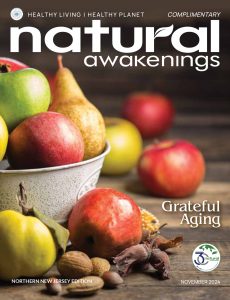The Role of Gratitude in Healthy Aging: Body, Mind and Spirit
As we age, the pursuit of health and happiness becomes a central theme in our lives. One powerful, yet often overlooked, tool in promoting healthy aging is gratitude. The practice of gratitude has profound effects on our physical health, mental well-being and emotional resilience.
Benefits of Gratitude for Seniors
Improved Physical Health: Research indicates that individuals that regularly practice gratitude experience better physical health. For older adults, this can translate into improved sleep quality, lower blood pressure and a strengthened immune system.
Enhanced Mental Well-being: Gratitude significantly contributes to emotional wellness in older adults. It can combat feelings of depression and anxiety often prevalent in aging populations. By focusing on what they are thankful for, seniors can cultivate a more positive mindset which can help mitigate negative emotions. Journaling about positive experiences or sharing gratitude with others can further enhance this effect.
Social Connections: Expressing gratitude fosters social bonds and strengthens relationships. As seniors navigate life changes such as retirement or the loss of loved ones, maintaining social connections becomes vital. Gratitude practices including sending thank-you notes or expressing appreciation during conversations, can enhance social interactions and create a sense of community.
Mindfulness and Aging Well
Mindfulness encourages individuals to appreciate the here and now, allowing seniors to recognize and savor daily experiences that bring them joy. Integrating mindfulness into gratitude practices can amplify their effects.
Heightened Awareness: Mindfulness promotes heightened awareness of thoughts and feelings, enabling seniors to identify moments of gratitude more easily.
Stress Reduction: Mindfulness is known to reduce stress, which is essential for healthy aging. When seniors practice mindfulness alongside gratitude, they create a powerful antidote to stress and anxiety. Mindful gratitude practices can be as simple as taking a few moments each day to reflect on what they are thankful for.
Gratitude Practices for Healthy Living
Gratitude Journaling: Encourage seniors to keep a gratitude journal where they can write down a few things they are thankful for each day.
Gratitude Meditation: A short daily meditation focusing on gratitude can be a powerful tool. Seniors can find a quiet space, close their eyes and reflect on the things they appreciate, such as relationships, experiences and even their own abilities.
Expressing Gratitude: Encourage seniors to express their gratitude verbally. This can be done through phone calls, notes or face-to-face conversations. Sharing their appreciation not only strengthens relationships, but also creates a positive feedback loop, enhancing their feelings of gratitude.
Gratitude Walks: Taking a mindful walk while focusing on gratitude can be invigorating. As seniors stroll through nature or their neighborhood, they can appreciate the beauty around them, such as flowers, trees or friendly faces.
For more information, visit NaturalAwakeningsNNJ.com.




























